The Visit (2015)
Directed by: M Night Shyamalan
Written by: M Night Shyamalan
Starring: Deanna Dunagan, Ed Oxenbould, Olivia DeJonge, Peter McRobbie
THE VISIT (2015)
Directed by M. Night Shyamalan
Once hailed an heir to Spielberg, director M. Night Shyamalan has become something of a joke to cinemagoers. Initially celebrated for his innovation, a reputation for arrogance, undergrad philosophy and groan-inducing twists in bloated blockbusters has seen his goodwill all but run out. With new comedy horror The Visit combining his name and the increasingly tired looking found footage narrative style, I feel my initial scepticism is understandable. Fortunately it’s something of a return to form for it’s creator, being that welcome arrival of his best film since the last good one (in my opinion, The Village, though I appreciate this is far from mainstream thought).
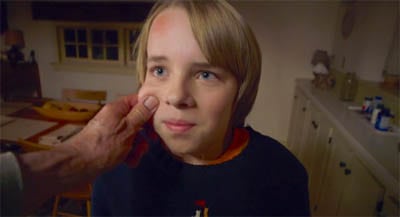
Trading in the epic scale of sci-fi Smith-dynasty piece After Earth for a small cast and mostly singular location, The Visit immediately establishes itself as a new Shyamalan experience. The plot is similarly minimalist, with teen moviemaker Becca (Olivia DeJonge) and her lispy-rapping brother Tyler (Ed Oxenbould) recording a video diary about their first ever visit to their grandparents house as their mother takes a well-earned break. Following on from a long term family grudge, built on something that happened when the children’s mother ran out, it has taken 15 years for the generations to meet. And when they first do it seems normal enough, with the little ones being doted upon by their slightly unhinged seeming elders. However, what begins as a quirky family drama soon gets horrific when it turns half nine and ‘Nana’ (Deanna Dunagan) and ‘Pop Pop’ (Peter McRobbie) lock the door. Without risking spoilers, this time in the evening appears to give birth to erratic and surreal behaviour from their grandma. Combined with grampa’s violent outburst at a man on the street, a creepy barn and a basement they’re not allowed in, the kids soon suspect something is amiss.
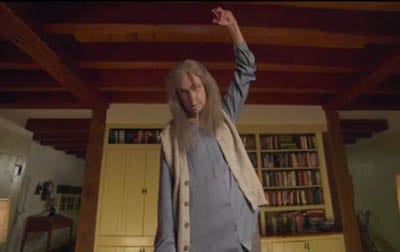
The first thing to note is that DeJonge and Oxenbould make the movie what it is. Whilst their elders are gleefully creepy, it is their brother-sister bond that gives the film a powerful emotional core. Their mucking around, shared fear and obvious but unspoken familial love for one another is so convincing many viewers will struggle not to think of their own siblings. Furthermore, with a refreshingly high amount of incidental dialogue, the duo are afforded a lot of time to hang out and make themselves (and more importantly us) laugh. This is the second big plus – don’t believe the trailer – the movie is a lot funnier than I’d have reasonably expected a Shyamalan picture to be. Much of it is laughter in the dark, with the film knowingly playing with the unnerving behaviour exhibited by the older cast. But there’s also a generous amount of humorous observations and one-liners bursting out of the script. These particularly come from the relative pretension of Becca, who highlights a lot of the film’s structural elements and visual language, compared to her more irreverent (and ethnically confused) brother. What’s less convincing is the combination of comedy and tension, with a number of the jump-heavy scare scenes’ power being rapidly diminished by the pursuit of a laugh. Even towards the end of the film, where some secrets have been found out and the plot builds towards a crescendo, the humour sometimes undercuts a lot of the film’s potential impact.
It doesn’t help that the twist (yes, there is one) isn’t a particularly satisfying one. It’s not necessarily one audiences will see coming because of some sophisticated sleight of hand in the script. But then nor is it one people will necessarily be surprised by, and for a movie that hangs so much on its mystery this is a glaring problem. Furthermore, The Visit wears its arcs like a favourite jeans and t-shirt combo. In this movie Shyamalan equips himself with an arsenal of Checkov’s guns, with the finale of the film being filled to the brim with highly telegraphed callbacks to really drum in our protagonists’ individual conflicts. It all feels very didactic, suggesting Shyamalan doesn’t trust himself to express characters journeys organically, or trust his audience to understand them. Nevertheless, even though I was not invested in the plot any longer, I still was by the characters so the closing act still passed with its tension intact. This may not be the sort of the film fans of The Sixth Sense and Unbreakable have been wanting. But then, in a turn of events that really pulls the rug out from under you, it’s also not bad. Now there’s a piece of form underlies meaning!

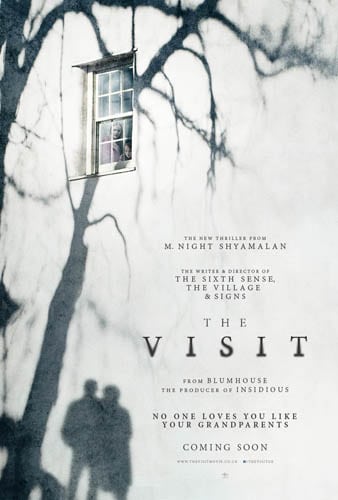





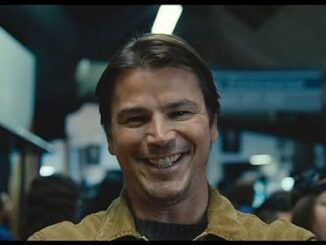

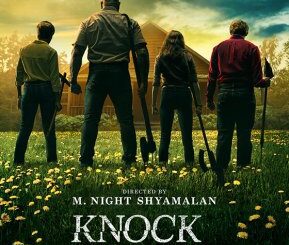
Be the first to comment